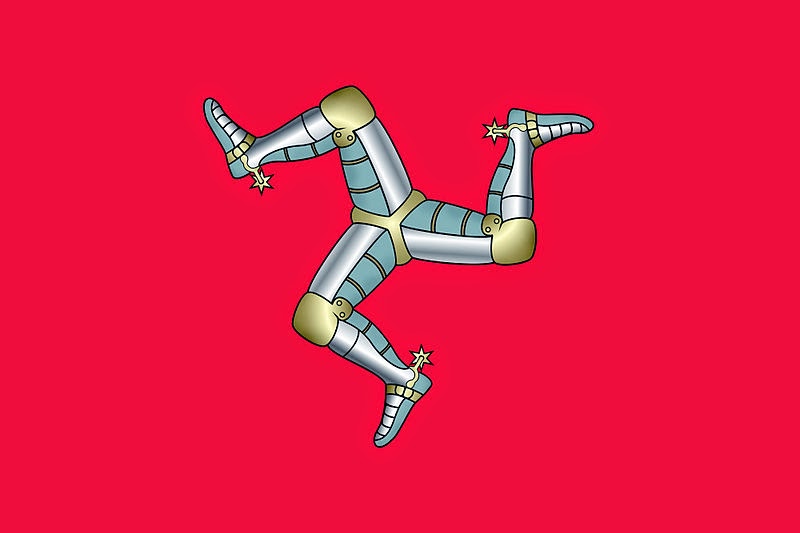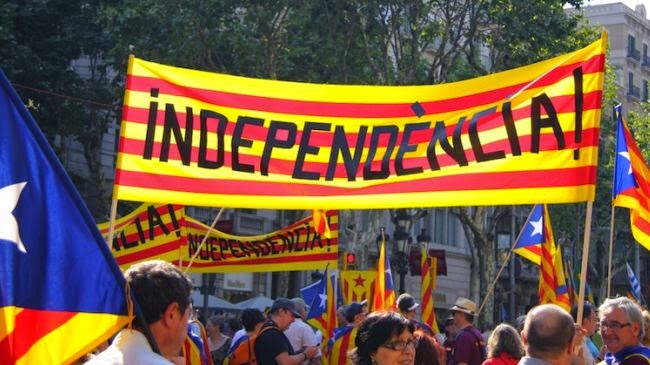In his last-ditch efforts to prevent Scotland from voting “yes” on independence tomorrow (September 18th), the United Kingdom’s prime minister, David Cameron, has shifted away from the tones of condescension which have in the past proved to make Scots bristle and become even more determinedly separatist. Instead, he has veered from maudlin nostalgia—saying he would be “heartbroken” if the U.K. were sundered, as though the hurt feewings of the leader of the Conservative Party ever entered into the considerations of nationalistic Scots—to, mostly, dire warnings. But those warnings at best misleading, and at worst disingenuous.
“If you don’t like me,” Cameron said yesterday, addressing himself to Scottish nationalists who are overwhelmingly way to the left of him, and of England, “I won’t be here forever. If you don’t like this government, it won’t last forever. But if you leave the U.K., that will be forever.” He added, “It is my duty to be clear about the likely consequences of a yes vote. Independence would not be a trial separation. It would be a painful divorce.”
But like all divorces, it would be a process. When a husband and wife, sitting around the kitchen table, decide to call it splits, then half the furniture in the house doesn’t magically vanish, and their savings account does not magically subdivide. What begins is a months- or years-long process of paperwork, negotiation, and implementation—and post-nuptial arrangements that it is for the two of them to agree upon. So it will be with Scotland and the U.K. starting tomorrow if Scots vote “yes”—which, polls indicate, they are about as likely to do as not. The Union Jacks would be lowered and the St. Andrew’s saltires raised, but that’s about all that would change on September 19th. Possibly, that’s all that would change for months. A process of negotiation would begin. And any number of things could be negotiated—negotiated by Scots, not decided for them.
In particular, Cameron has warned about the consequences of being suddenly left outside the North Atlantic Treaty Organization (NATO), outside the European Union (E.U.), and without the British pound. We can take each of these in turn.
 |
| Europe’s NATO member states and when they joined |
Despite the promises by Alex Salmond, Scotland’s separatist First Minister (chief executive), that Scotland could stay in the E.U. and Cameron’s threats that it couldn’t, no one is 100% sure what would happen. Processes for E.U. accession are complex and time-consuming, and no one is even certain if this would be a case of accession. It might be one of succession. But there has never been a federal member-state dissolved within the E.U. before; there are no provisions for it. When the Soviet Union vanished in 1991, its fifteen constituent republics swiftly gained United Nations seats as soon as they were internationally recognized—not just the Baltic States, whose annexation the U.N. had never recognized anyway, or Ukraine and Belarus, who had token U.N. seats already, but all of them. When Czechoslovakia became the Czech Republic and the Slovak Republic in 1994, two new U.N. member states blipped into existence as Czechoslavakia blipped out; no one had to apply. Now, the U.N. is not the E.U., and things wouldn’t go quite that smoothly with the E.U., but they might go nearly as smoothly once the details had been agreed upon. First, legal experts would have to sort out the legal implications of thousands of pages of rules which do not address the issue directly, and, second, there would have to be a search for consensus within the E.U. as to whether Scotland should be allowed to stay in. (See an article from this blog discussing the accession-vs.-succession issue in more detail.)
In fact, Scotland could conceivably use the argument that if an independent Scotland had to reapply for E.U. membership, so would the other new, unprecedented state coming into existence simultaneously: the Sort of United Kingdom of England and Bits of Ireland Plus Wales or Something of the Sort. The U.K. came into existence in the first place as the equal merger of the two kingdoms of England and Scotland. So why shouldn’t international organizations be required to treat the two resulting pieces of that sundered union equally? A strong case could be made.
 |
| The European Union |
Setting that aside, in the case Scotland had to reapply for membership, would the rump U.K. and the rest of the E.U. accept it? The “no” camp makes it sound now as though that is far from guaranteed. But once independence were a reality, would it be in Cameron’s interest, or anyone’s, to ensure Scotland’s exile from the E.U. just to make some point, or to punish Scots? No; trade barriers between Scotland and England would hurt the English too, if not quite as much as it would the Scots. The U.K. public and the U.K. political establishment would be unanimous in wanting Scotland to stay in the E.U. Negotiating stubbornly and vindictively with Edinburgh would not be in any U.K. prime minister’s interest, on this or any other issue.
What about the rest of the E.U.? The biggest sticking point might be the government of Spain, which has repeatedly indicated that it would veto the membership application of an independent Scotland—possibly in some kind of a pact with the U.K. government, in exchange for a U.K. veto of an application by a potentially independent Catalonia in the future. But an E.U. vote on Scottish membership would not happen until well after Catalonia’s November 2014 referendum on independence, and may not even happen the next year or the one after that—by which time Scotland would probably still be in the E.U. while it negotiated the mechanics of its separation from the U.K. Soon enough we will know better how the Catalan secession movement is to play out, and the situation of Catalonia is very different. For one thing, the Spanish government has forbidden Catalonia to hold its referendum in November, and Catalonia seems set to defy Madrid and hold it anyway. Not only will it not be a binding referendum, but it will be an “illegal” one. Even if the Scottish case created a precedent for succession to membership, rather than accession, of secessionist states within the E.U., it would certainly be a precedent that included the consent of the parent state among its firm requirements. Spain, if it decided to remain bloody-minded and undemocratic in its approach to Catalan national aspirations, would have nothing to fear from Scottish membership in the E.U. and could accomplish nothing by blocking it. It knows this already, and its threat of a mutual-veto pact is a posture intended to frighten Catalans and to frighten Scots from “encouraging” them. And the same goes for other E.U. member states with separatist regions—Italy with Padania, Germany with Bavaria, etc. (Belgium is a special case; its dissolution is inevitable, and no one will let Brussels itself fall outside the E.U.)
Plus: will the U.K. even stay in the E.U.? Cameron never brings this up on his trips to Edinburgh, but the United Kingdom Independence Party (UKIP) has already pressured the Conservative Party into promising a referendum on E.U. membership if it is reelected. Even with left-leaning, pro-Brussels Scotland in the U.K., no one can be 100% sure how such a vote would go, and the far more right-wing and Euroskeptic country a Scotland-less U.K. would become would be if anything more inclined to leave the E.U. It would be reasonable for a Scot to feel that leaving the U.K., far from being a guaranteed exile from the E.U., would be the best way to ensure keeping E.U. membership. After all, if Scotland voted “no” and then the U.K. voted to leave the E.U., Scots would be utterly powerless to prevent it. Utterly. See, that’s where it sometimes helps to be—what is that word again?—independent.
These arguments about staying in the E.U. also, if you will pardon the term, scotch the “no” camp’s warnings of how poor a country Scotland would be if independent. Scots are warned that all that North Sea oil and natural gas will eventually run out. What the unionists are not mentioning is that, if Scotland stays in the U.K., then it is the U.K.’s oil and natural gas that will run out—and no one seems horrifically worried about the effects of that. Nor is Norway, which has a comparable share of the same resource-rich North Sea, debating whether or not it should ask to become a colony of Denmark again as a hedge against the oil running out. In sum, things like non-renewable resources running out is one reason it makes sense to stay in a trade union like the E.U.—or, like Norway, to have a special trading pact with one. Independent or not, everyone will want Scotland’s economy to remain embedded in Europe’s and the world’s and to be diverse and not non-resource-extraction-dependent—and it will be. (See an article from this blog discussing different aspects of Scotland’s oil question.)
But what about the pound? Cameron and the “no” camp have stated repeatedly that Scotland may not keep the pound. In point of fact, it may not be for the U.K. to say. Pound notes are minted by the Bank of England and by the Bank of Scotland, both of them institutions which date to well before the merger of the two kingdoms as the U.K. more than 300 years ago. The political and legal process that would follow a “yes” vote tomorrow may well determine that Scotland has as much a right to keep printing them as England does. And even if it doesn’t, then the U.K. could, with one vote in Parliament, extend to Scotland that privilege, and—as is the case with trade barriers mentioned above vis-à-vis the E.U.—everyone would benefit from Scotland and the rest of the U.K. having a shared currency and thus everyone could and would work together to ensure it. And even if a rump-U.K. government were politically pressured to shoot itself and its people in the foot (feet?) economically by denying Scotland the right to use the pound, nothing could stop them. Ecuador, after all, uses the United States dollar as its currency. It need not ask the U.S. for permission to do so, and Washington need not grant it. If a country has the coins and notes, it can use them. Furthermore, at the end of the inevitable long transition period a “yes” vote would set in motion, Scots might decide—no one else could decide this for them, only Scots—to join the Euro Zone or to establish their own currency, pegged to another currency to whatever extent they might like. There is ample time to do this. Cameron’s warnings on currency are not so much tilting the arguments in one direction; they are lies.
In sum, independence can mean a lot of different things, none of which has been fully specified. For example, three states—the Isle of Man and the two Channel Islands, Jersey and Guernsey—are not part of the U.K. but are instead Crown Dependencies. Queen Elizabeth II is their sovereign, just as she is of far-flung, fully independent states like Jamaica and Papua New Guinea, but the three are 100% self-governing save for the areas of currency and defense. (Newfoundland once held this status as well.) Man and the Channel Islands are actually more independent of the U.K., in some ways, than any two E.U. member states are from each other. In fact, the three island nations lie outside the E.U., but only because they—like Denmark’s Greenland and the Faroe Islands and some other European overseas possessions—chose to when the U.K. joined in 1973. They could as well have chosen to be in it—perhaps with special exemptions from rules, such as those Finland’s self-governing Åland territory negotiated for itself when its parent country joined—and it would have been their decision, not London’s. (As it happens, they like being offshore tax havens.) In legal terms, Man and the Channel Islands are three independent states in free association with the U.K., exactly the same status held by Palau, the Marshall Islands, and the Federated States of Micronesia, which are states in free association with their former colonial master, the U.S., and which have their own U.N. seats—as Man and the Channel Islands could too if they ever decided to bother with it. (The same goes for New Zealand’s two “free association” states, the Cook Islands and Niue.) If London and Edinburgh decided that it was the best solution, Scotland could become a Crown Dependency, though for psychological reasons Scots might opt for more accurate terminology, like “Independent Commonwealth Realm in Free Association.” Or it could choose a slightly greater or lesser degree of independence in any number of ways—for example, with a currency deal or without, with a defense pact or customs union of any sort the two states wished to negotiate, etc. etc.
 |
| The flag of the Isle of Man |
[For those who are wondering, yes, this blog is tied in with my forthcoming book, a sort of encyclopedic atlas to be published by Auslander and Fox under the title Let’s Split! A Complete Guide to Separatist Movements and Aspirant Nations, from Abkhazia to Zanzibar. (That is shorter than the previous working title.) The book, which contains dozens of maps and over 500 flags, is nearly ready for the printer and should be on shelves, and available on Amazon, by February 2015. I will be keeping readers posted of further publication news. Meanwhile, please “like” the book (even though you haven’t read it yet) on Facebook and see this special announcement for more information on the book.]












